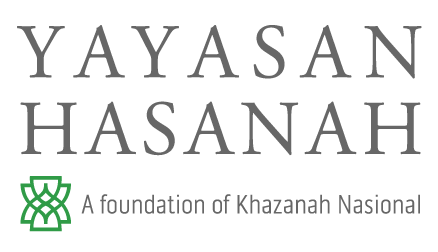Yayasan AMIR was established by Khazanah in 2010, to develop a comprehensive and scalable public school transformation model that sustainably improves student outcomes through four strategic goals – focusing on school leadership, teachers, students, and parents and community via a long-term commitment to improve accessibility to quality education through a Public-Private Partnership with the Ministry of Education. The selection of Trust Schools represents a good cross-section of Malaysian schools, comprising both primary and secondary schools, vernacular and residential schools in urban as well as rural areas. Five-year strategic Trust School Road maps and annual Trust School Improvement Plans have been introduced at each of the 83 schools to-date and overseen by Yayasan AMIR. A priority at the Trust Schools is to provide a rich and engaging learning environment, so students can fulfill their personal and scholastic potentials.
The Trust School difference is that schools are guided to be more innovative and given autonomy to develop their own Standards Operating Procedures, curriculum delivery, continuous professional development, finance and procurement, human resource development as well as capable of making their own decisions through entrepreneurship-like management. It is evident in various learning walks that that teachers are becoming more enthusiastic and passionate about 21st century teaching and learning approaches, making lessons more student-centric instead of the conventional teacher-centric. In turn, students become more interested in learning and hence pay greater attention in classrooms. Students actually want to go to school, proven by the huge drop in absenteeism. In certain rural schools in Sarawak, students make their way to school despite floods.
For the last decade, the Trust School Programme (TSP) has been exploring options to benefit more primary and schools, introduce new approaches and address gaps in the education system. One of the learnings as observed by the TSP was the need to build the capacity of state education systems – Schools, State Education Department (JPN), and District Education Offices (PPDs) to take greater ownership of the public school transformation process.
Hence, the District Transformation Project (DTP) – AMAN is designed to fulfill this need through a two-step approach of Organisational Enhancement and PPD-led Transformation – impacting JPN and the 9 PPDs across 64 selected schools in Kedah. The goal of the project was to enhance the capability and capacity of personnel within the JPN and PPDs to support and scaffold school transformation by working with the Senior Leadership Teams (SLTs) of the respective schools.
As 2018 is seen as the first year of the project, the focus has been on building relationships and capacity development with and for JPN and PPD officers. Formal and informal engagements were also held for JPN and PPDs to help familiarise and build their understanding mainly through the six (6) Continuing Professional Development (CPD) sessions focusing on Change Leadership, Instructional Leadership and School Improvement Plan, with 9-11 weeks cycle per CPD. An informal assessment has shown that the programme has been well received with many PPD’s. Infact, one of the PPD’s, En Fakhrurazi Abdul Majid, (PPD Officer in Baling, Kedah) explained how the initiative managed to address various issues across stakeholders.
“Compared to some past transformation initiatives that we had experienced, Project AMAN has been very professionally managed to-date with strategic plans designed for each levels of intervention (schools, and JPN). It’s very hands-on. Although reducing teachers’ administrative burden may seem insurmountable, I believe that efforts made towards the alignment between DTP and AMAN has been crucial towards ensuring positive acceptance and sustainability of the transformation initiative in the long run. One thing for sure, the learning process has so far been an enjoyable one” – En Fakhrurazi Abdul Majid, (PPD Officer in Baling, Kedah)

